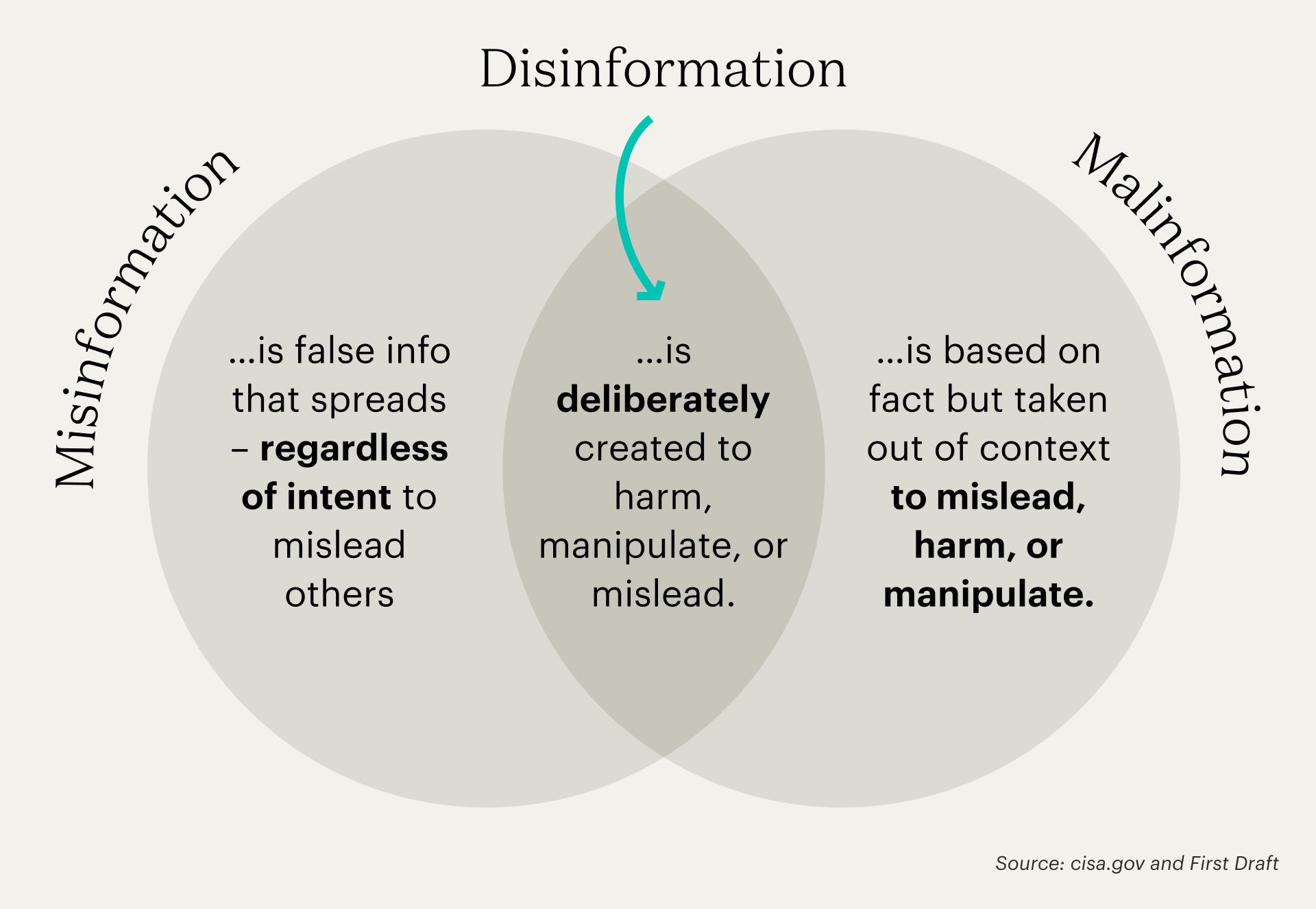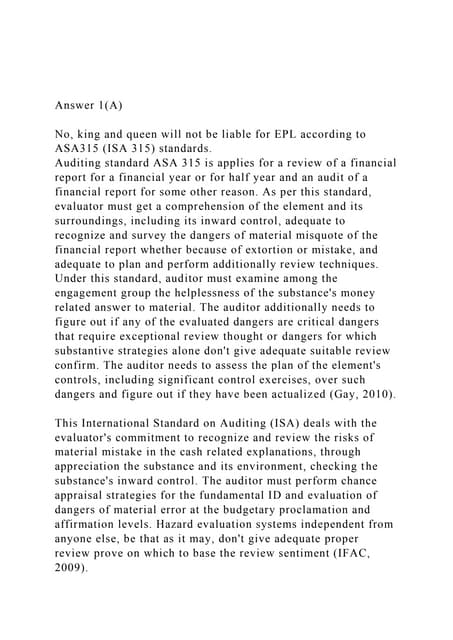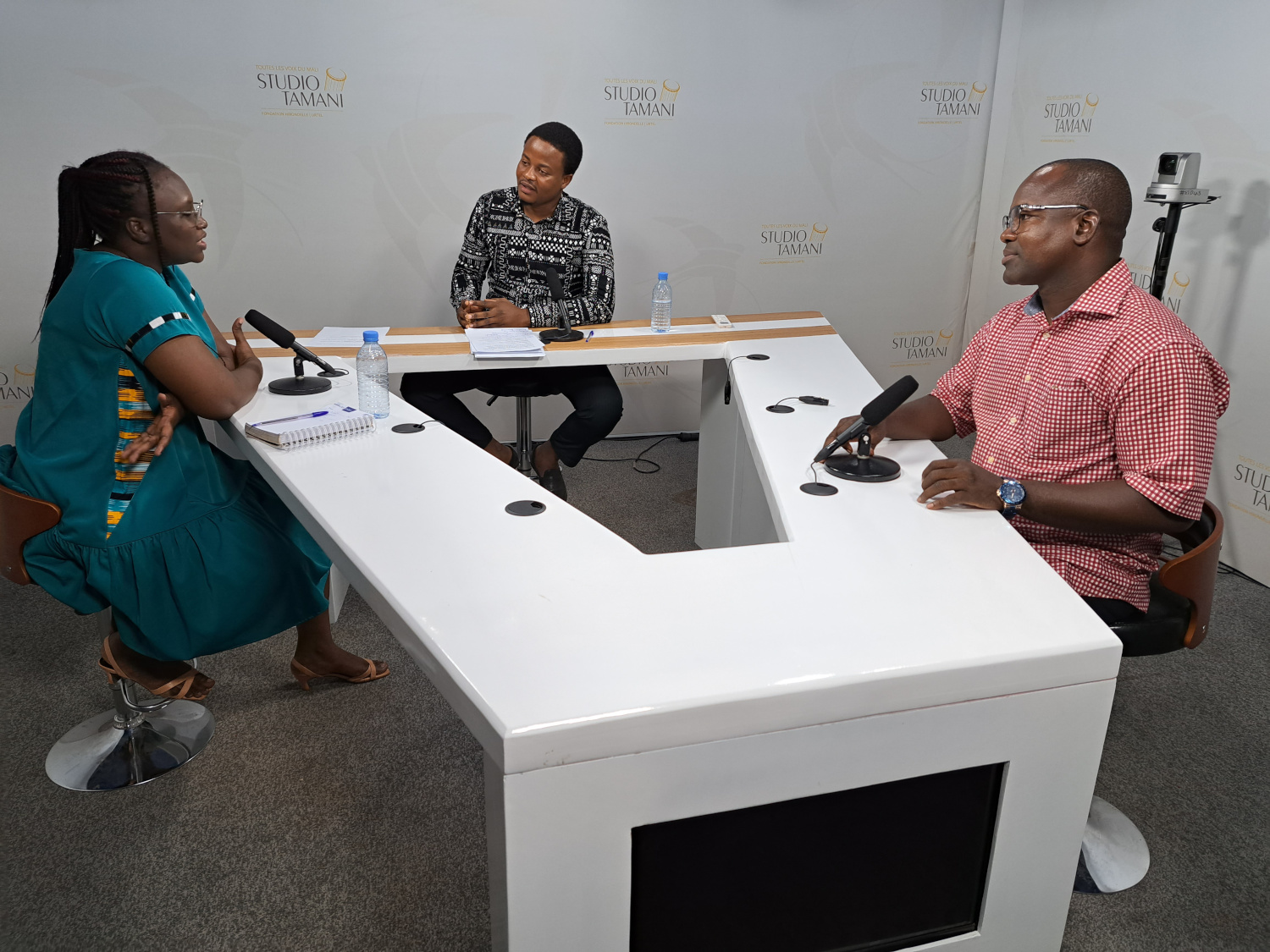Countering Misinformation: Lessons From CNN's Experts

Table of Contents
Identifying Misinformation: Recognizing Red Flags
Spotting misinformation requires a critical eye and a healthy dose of skepticism. Learning to recognize the red flags of false information is the first step in countering its spread.
Spotting False Claims and Propaganda Techniques
Misinformation often employs manipulative techniques to appear credible. To effectively identify it, consider these factors:
- Examine the source's credibility: Is the website or social media account known for publishing accurate information? Be wary of anonymous sources or sites with a history of spreading false narratives. Check the "About Us" section for transparency.
- Look for biased language: Does the text use emotionally charged words, inflammatory language, or generalizations to sway your opinion rather than present facts? Be alert for loaded terms and unsubstantiated claims.
- Check for supporting evidence: Does the information cite credible sources? Are there links to supporting documents or research studies? Claims without evidence are highly suspect.
- Identify logical fallacies: Does the argument rely on faulty reasoning, such as straw man arguments, slippery slopes, or appeals to emotion? Understanding common logical fallacies is vital for critical thinking.
- Be wary of sensational headlines: Clickbait headlines often signal misinformation. Sensational or overly dramatic headlines aim to grab attention rather than present factual information.
- Consider the overall context: Does the information fit within the broader context of established facts and knowledge? Does it align with what you know from other trustworthy sources?
For example, a news story claiming a major scientific breakthrough without peer-reviewed research or citing reputable scientific journals is a significant red flag. Similarly, social media posts using emotionally charged language to promote a political candidate without providing specific policy details should be viewed with skepticism. Recognizing propaganda techniques, such as the bandwagon effect (everyone's doing it), ad hominem attacks (attacking the person, not the argument), and appeals to emotion, is also critical in identifying misinformation. Fact-checking websites like Snopes and PolitiFact can be invaluable tools for verifying claims.
Evaluating Sources: Trustworthy vs. Untrustworthy
Determining the reliability of a source is paramount in countering misinformation. Not all information sources are created equal.
Determining Source Reliability
To assess the reliability of a source, consider the following:
- Assess the website's domain (.gov, .edu, .org): While not foolproof, government (.gov), educational (.edu), and non-profit (.org) domains often indicate a higher level of credibility, although this is not always the case.
- Look for author credentials and expertise: Are the authors experts in the field? Do they have relevant qualifications and experience? Anonymous or unattributed information should be treated with caution.
- Check for transparency and contact information: Does the website provide contact information? Is there an "About Us" section that details the organization's mission and goals? Lack of transparency is a red flag.
- Analyze the website's overall reputation: Has the website been accused of spreading misinformation in the past? Check online reviews and search for information about its reputation.
- Cross-reference information with multiple sources: Don't rely on a single source. Verify information by consulting multiple reputable sources. If multiple credible sources corroborate the information, it's more likely to be accurate.
Reputable news organizations, such as the Associated Press (AP), Reuters, and BBC News, generally adhere to high journalistic standards and fact-checking processes. Conversely, websites with a history of publishing false or misleading information should be avoided. Developing strong media literacy skills is essential for differentiating between trustworthy and untrustworthy sources.
Combating Misinformation: Strategies for Effective Response
Once you've identified misinformation, taking effective action is crucial. This involves both personal actions and broader strategies.
Responding to Misinformation Online
Responding to misinformation online requires a strategic and calm approach:
- Don’t engage with trolls or spread misinformation further: Ignoring trolls often prevents the further spread of misinformation. Engaging can unintentionally amplify the reach of false information.
- Provide factual corrections calmly and politely: Offer factual corrections supported by evidence from credible sources. Avoid aggressive or confrontational language.
- Share links to trustworthy resources: Direct people to reliable sources that offer accurate information on the topic.
- Report misinformation to platforms: Many social media platforms have mechanisms for reporting misinformation. Use these tools to help remove false content.
- Promote media literacy and critical thinking among your network: Educate your friends, family, and colleagues on how to identify and counter misinformation.
Remember, respectful dialogue is key. Avoid inflammatory language or personal attacks. Focus on presenting facts and evidence in a clear and concise manner. Successful responses often involve providing context, correcting factual inaccuracies, and linking to authoritative sources.
The Role of Media Literacy in Countering Misinformation
Developing strong media literacy skills is essential for navigating the digital age effectively and countering misinformation.
Developing Critical Thinking Skills
Critical thinking empowers individuals to differentiate truth from falsehood:
- Question information you encounter: Don't passively accept information at face value. Ask yourself: Who created this content? What is their motive? Is there evidence to support their claims?
- Seek multiple perspectives: Explore different viewpoints and consider various sources of information before forming an opinion.
- Verify claims before sharing: Before sharing information online, take the time to verify its accuracy.
- Analyze the author's bias: Consider the author's background, potential biases, and motivations. This can help you assess the objectivity of the information presented.
- Identify cognitive biases that influence your thinking: Be aware of your own biases and how they might affect your interpretation of information. Cognitive biases can unconsciously lead us to accept information that confirms our pre-existing beliefs.
Media literacy education plays a critical role in equipping individuals with the skills they need to navigate the complex information landscape. By teaching critical thinking skills and promoting responsible information sharing, we can collectively combat the spread of misinformation and create a more informed and resilient society.
Conclusion
Countering misinformation is a continuous and essential process. By utilizing the strategies and lessons learned from CNN's experts – identifying red flags, evaluating sources critically, and responding effectively online – we can collectively combat the spread of false narratives and build a more informed society. Strengthen your ability to counter misinformation by actively practicing media literacy and engaging with trustworthy news sources like CNN. Learn to identify the hallmarks of misinformation and become a responsible sharer of accurate information. Let's work together to create a more informed world where truth prevails.

Featured Posts
-
 Where To Buy Every Ps 5 Dual Sense Controller Color In 2025
May 03, 2025
Where To Buy Every Ps 5 Dual Sense Controller Color In 2025
May 03, 2025 -
 Souness Havertz Still Not The Answer For Arsenals Epl Struggles
May 03, 2025
Souness Havertz Still Not The Answer For Arsenals Epl Struggles
May 03, 2025 -
 Joseph Dans La Creme De La Crim Tf 1 Personnage Et Intrigue
May 03, 2025
Joseph Dans La Creme De La Crim Tf 1 Personnage Et Intrigue
May 03, 2025 -
 Gaza Macron Met En Garde Contre Une Militarisation Israelienne De L Aide Humanitaire
May 03, 2025
Gaza Macron Met En Garde Contre Une Militarisation Israelienne De L Aide Humanitaire
May 03, 2025 -
 Macron Alerte Sur La Militarisation De L Aide Humanitaire A Gaza Par Israel
May 03, 2025
Macron Alerte Sur La Militarisation De L Aide Humanitaire A Gaza Par Israel
May 03, 2025
